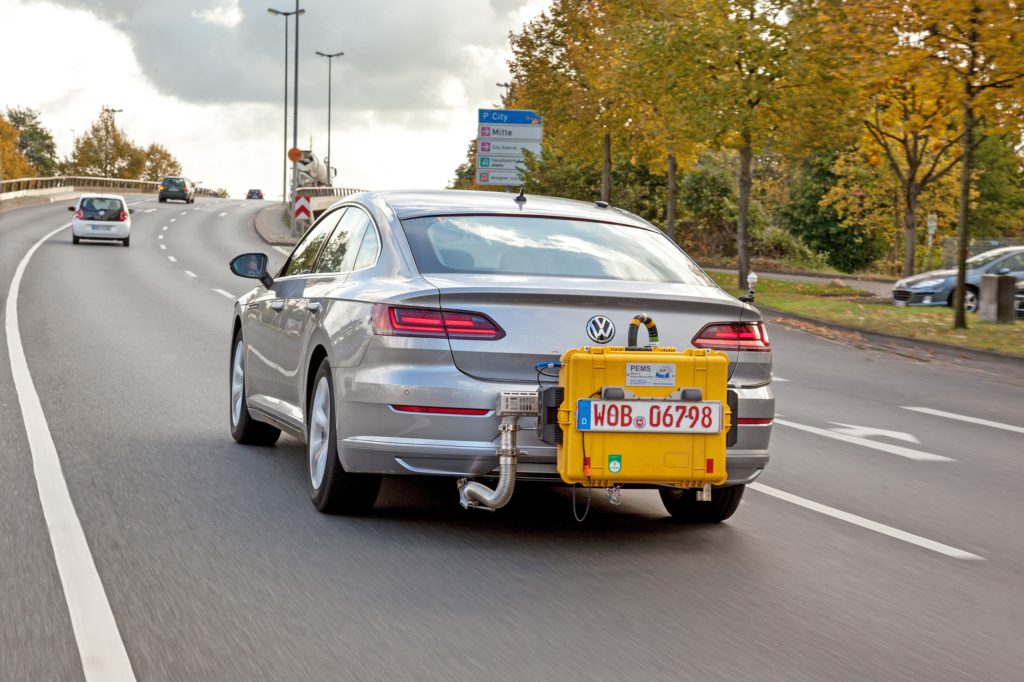Financial results show WLTP affecting carmakers, suppliers and dealers
30 October 2018

30 October 2018
Vehicle manufacturers and suppliers are struggling in the wake of the introduction of WLTP, with Q3 financial results highlighting large losses partially as a result of the new procedure.
Daimler, Volkswagen, Valeo and Michelin have all cited the new emissions standards as a reason for dramatic declines and profit warnings announced within Q3 2018 results. From the cost of the testing and the need to re-engineer certain models to production bottlenecks causing supply issues, the new procedure has left a mark on the industry that will take a little time to erase.
Daimler suggested at the end of its Q2 results that its third-quarter financials would be hit by the introduction of WLTP. The company has now revealed profits in the three months to September 2018 were 27% down on the same period last year, the company making just €2.49 billion.
′The automotive industry and thus also Daimler are still in a very challenging environment. The continued high demand from our customers makes us confident for the fourth quarter,’ stated Dieter Zetsche, Chairman of the Board of Management of Daimler AG and Head of Mercedes-Benz Cars.
Part of the reason for the company’s large drop in profits was the negative spillover from WLTP causing higher inventories, a situation the company expects to normalise towards the end of the year.
Meanwhile, Volkswagen (VW) Group profits fell 19% in Q3. The company stressed however that vehicle deliveries are up 4.2% in the first nine months of the year, despite the issues it has faced surrounding WLTP.
The German manufacturer stated in August that around half its fleet was not ready for the new emissions rules, including its leading Golf model. This was finally passed and put back on sale at the end of September, affecting the company’s profits. Deliveries in Q3 declined by 3.6% as a result.
Herbert Diess, Chairman of the Board of Management of Volkswagen AG, explained: ′The development in the first nine months of the current fiscal year is encouraging. We are still facing major challenges, that we and the entire automotive sector have to overcome. As we are currently in the midst of a groundbreaking transformation, we have to continue picking up the pace.’
Supplier woes
It is not just the carmakers that are struggling; suppliers are as well. Valeo, a maker of multiple components for manufacturers, has issued a profit warning and revised its expected year-end results, with finances in Europe hit by the implementation of WLTP.
Jacques Aschenbroich, Valeo’s Chairman and Chief Executive Officer, commented: ′On July 25, we made it clear that Valeo’s sales would be impacted in the third quarter, temporarily by WLTP in Europe and by the market slowdown in China. In this complex environment, Valeo outperformed the market by 2% during the period.
′The impact of WLTP in Europe is set to continue into the fourth quarter, and market conditions in China will remain challenging.’
The company is looking to cut its costs over the rest of the year by €100 million and is forecasting growth of 2% in the second half of 2018, and 6% overall for the year.
Dealerships struggle
WLTP issues have also had an impact on dealers, as vehicles have been sold at a lower price due to pre-registration, or models have not been available due to the need to pass the new standard.
The UK’s Pendragon Group has projected a full year profit decline of 17.2%, as revenues in Q3 fell 7.2%.
A statement released by the company states: ′The introduction of Worldwide Harmonised Light Vehicle Test Procedure has created disruption in new car sales and uncertainty over new vehicle supply. UK New Car market data for the month of September showed a decline of 20% in new car registrations and a similar trend has continued in October demonstrating the impact of WLTP.
′This has caused significant new vehicle supply disruption, which gives us cause for concern over the coming months for new vehicle sales and profitability. This will clearly have an effect on the Group.’